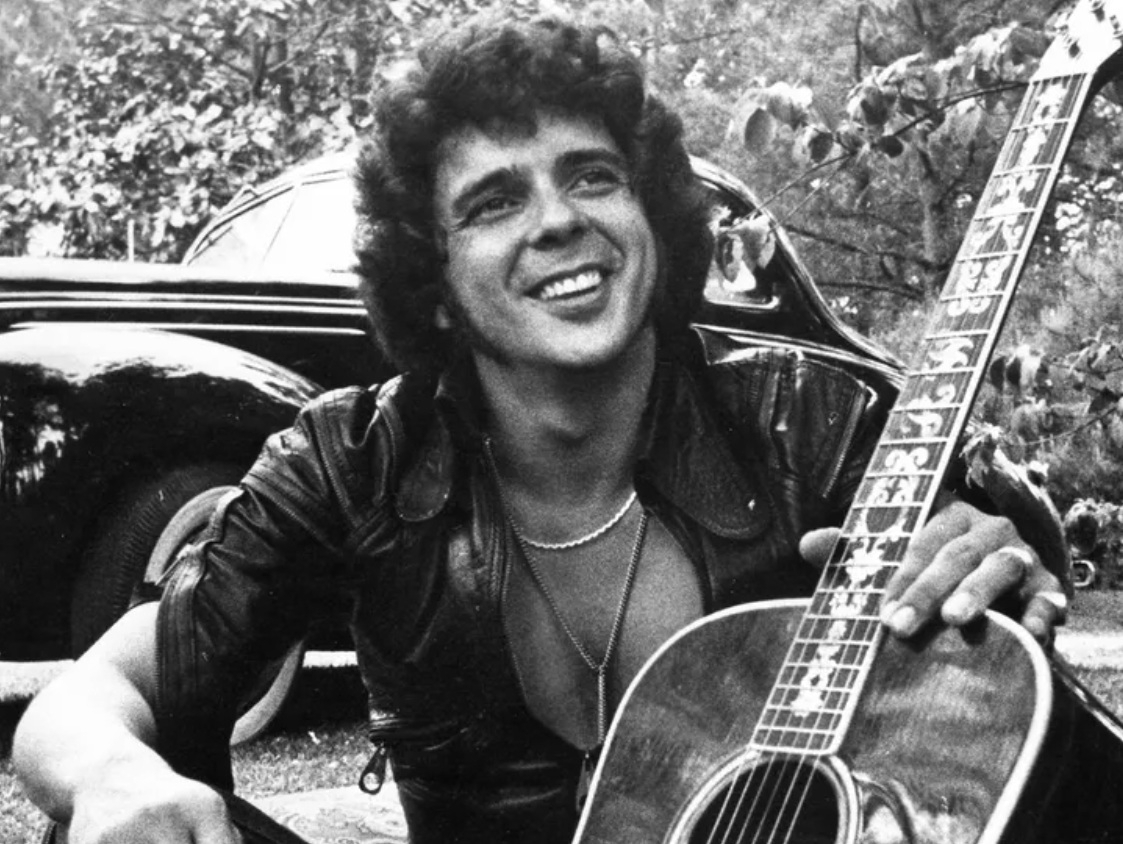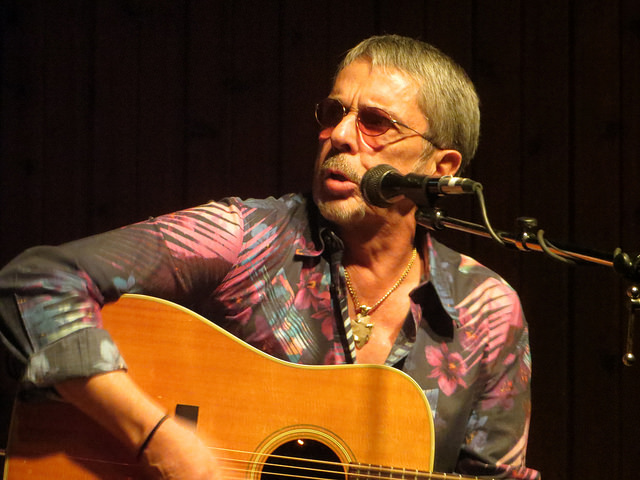
Early Life and Musical Roots
Bobby Whitlock was born Robert Stanley “Bobby” Whitlock in Memphis, Tennessee, on March 18, 1948, and grew up in a poverty-stricken environment in Millington, just outside Memphis. His formative years were steeped in the soulful resonance of Southern gospel, particularly from his early experiences in church music. This spiritual musical foundation deeply shaped his style as both a singer and keyboardist.
As a teenager, Bobby Whitlock gravitated toward the Stax Records scene. He developed friendships with key soul artists—including Booker T. & the M.G.’s, the Staple Singers, and Albert King—and began appearing on sessions. Notably, he earned his first credited recording by contributing handclaps to Sam & Dave’s hit “I Thank You.” Soon after, he was signed by Stax’s pop imprint, becoming the first white artist on the label.
Though his initial signing signaled promise, Whitlock would make a life-changing decision: leave Memphis behind after being invited to join Delaney & Bonnie and Friends, the influential rock-soul ensemble led by Delaney and Bonnie Bramlett.
Rising Through the Ranks: Delaney & Bonnie and Friends
In 1969, Bobby Whitlock’s role with Delaney & Bonnie and Friends became a gateway to broader horizons. He played keys and provided additional vocals on their albums Home and Accept No Substitute. The group’s tours introduced him to a constellation of artists—including Eric Clapton, with whom he crossed paths when Delaney & Bonnie opened for Clapton’s Blind Faith.
Clapton later described Whitlock as “the most energetic sideman I had ever seen,” highlighting both his passion and instrumental ability.
Collaborations with Clapton and Harrison: A Creative Renaissance
The connections Whitlock made in 1969 would soon spark legendary projects. He joined Clapton, bassist Carl Radle, and drummer Jim Gordon for sessions backing George Harrison on his landmark triple album All Things Must Pass (1970). Whitlock’s contributions there were expansive—he performed on organ, piano, harmonium, tubular bells, and added backing vocals on hits like “My Sweet Lord” and “What Is Life.” This collaboration marked his emergence as a versatile studio musician.
Derek & the Dominos: A Brief, Brilliant Burst
Following the All Things Must Pass sessions, Clapton, Whitlock, Radle, and Gordon formed Derek & the Dominos. Whitlock co-founded the band in mid-1970, contributing to its short but powerful existence.
- First single: “Tell the Truth”—a U.S.-only release largely written by Whitlock.
- Debut album: Layla and Other Assorted Love Songs (1970), produced by Tom Dowd at Miami’s Criteria Studios, now regarded as a classic of blues-rock.
.
Bobby Whitlock co-wrote or contributed to seven tracks on the album: “Anyday,” “Why Does Love Got to Be So Sad?”, “Keep on Growing,” “Thorn Tree in the Garden,” “Tell the Truth,” “Bell Bottom Blues”, and others. His significant role extended beyond songwriting—his soulful keyboard playing and vocal interplay with Clapton provided much of the album’s emotional resonance.
Derek & the Dominos toured the UK and U.S. in 1970 but were short-lived; internal pressures, drug issues, and tragic events like Duane Allman’s death led to their breakup by mid-1971.
Solo Career and Further Collaborations
After the band’s dissolution, Whitlock launched a solo career:
- Debut Solo Album (1972): Bobby Whitlock, featuring contributions from Clapton, Radle, Gordon, and George Harrison.
- Second Album (1972): Raw Velvet, which included former bandmates; Clapton even appeared uncredited.
He released more albums throughout the 1970s—One of a Kind (1975) and Rock Your Sox Off (1976).
Whitlock also made notable session appearances:
- Dr. John’s The Sun, Moon & Herbs (1971)
- Clapton’s The History of Eric Clapton
- Manassas’ Down the Road (1973)
- Uncredited contributions to The Rolling Stones’ Exile on Main St. (1972)
Hiatus, Return, and Later Year Collaborations
In the late 1970s, Bobby Whitlock stepped back from music, relocating to Mississippi to raise his family.
He returned in 1999 with the album It’s About Time, reigniting his creative output. From the early 2000s onward, he collaborated closely with his wife, CoCo Carmel:
- Other Assorted Love Songs, Live from Whitney Chapel (2003)
- Albums including Lovers (2008), Metamorphosis (2010), Carnival: Live in Austin (2013), Esoteric (2012), and My Time, Vintage, among others.
They moved to Austin, Texas, around 2006, where Bobby became active in the local music scene.
Personal Struggles, Redemption, and Artistic Reinvention
Bobby Whitlock battled addiction and, in a 2011 interview, described a life-changing turning point when he decided to reclaim his health and sobriety, inspired by seeing Eric Clapton in a state of calm—“an aura of peace”—which prompted him to “want my life back.”
He also dealt with lost royalties: Clapton and his manager later helped him regain ownership of his work on Layla, and finally acknowledged his co-writer contribution to “Bell Bottom Blues”, granting him deserved credit and royalties.
Expansion into the Visual Arts
Beyond music, Whitlock discovered a passion for painting. By the 2020s, he had created over a thousand artworks, including cover art commissions—his painting featured on John Fusco’s John the Revelator CD.
In 2022, his paintings were exhibited at the Crockett County Museum in Ozona, Texas, underlining his recognition as a visual artist.
In 2024, he received a Brass Music Note—a symbolic honor—on Memphis’ Beale Street Walk of Fame, acknowledging his contributions to music and legacy in his hometown.
Memoir and Reflections on Life and Music
In 2010, he published Bobby Whitlock: A Rock ’n’ Roll Autobiography, co-authored with Marc Roberty and introduced by Eric Clapton. The book reveals candid details of his life—from gospel roots and musical highs to addiction, recovery, and personal growth.
.

.
A recurring theme throughout his life was his simple philosophy: “Life is what you make it, so take it and make it beautiful.” This quote, shared by his wife after his passing, reflects his outlook and inspiring evolution from hardship toward creative and personal fulfillment.
Final Days and Legacy
On August 10, 2025, after a brief battle with cancer, Bobby Whitlock passed away peacefully at home in Texas, surrounded by family. His death was confirmed by his manager and wife, CoCo Carmel Whitlock.
He is survived by his wife, CoCo Carmel, and three children—Ashley Faye Brown, Beau Elijah Whitlock, and Tim Whitlock Kelly—as well as his sister Debbie.
Eric Clapton paid tribute, offering condolences and reflecting on their lifelong friendship and collaboration.
Why Bobby Whitlock Mattered
1. Soulful Versatility & Musicianship
From the Stax studio sessions to the Layla album, Whitlock infused rock music with soulful, gospel-rooted depth. His keyboard playing and vocals were subtle but fundamental to the emotional power of songs like “Bell Bottom Blues,” “Anyday,” and “Why Does Love Got to Be So Sad?”
2. Songwriting Partnership with Clapton
Bobby Whitlock’s songwriting sharpened Clapton’s work during a crucial creative moment. His contributions gave depth and authenticity to Layla, a record now enshrined as a cornerstone of classic rock.
3. Collaborator Extraordinaire
His work spans major projects: Harrison’s All Things Must Pass, The Rolling Stones’ Exile on Main St., Dr. John, Manassas, solo ventures with Clapton, and more—often behind the scenes, with serious artistic impact.
4. Creative Redemption
Whitlock’s personal journey—from adversity and addiction to recovery, artistic rebirth, and self-awareness—is a testament to resilience. Regaining recognition (and royalties) for Layla and Bell Bottom Blues marked a hard-won justice later in life.
5. Reinvention & Impact Beyond Music
Whitlock’s later years spotlight his evolution as an artist—through memoir, studio comebacks, collaboration with his wife, painting exhibitions, and public honors like the Beale Street Walk of Fame.
Conclusion: The Soul Behind the Legend
Bobby Whitlock’s story is one of artistic brilliance rooted in gospel-infused soul, transformed into timeless music that continues to resonate. As a central figure behind Layla, as a trusted collaborator of Clapton and Harrison, and as a creative spirit who reinvented himself through music, writing, and art, Whitlock leaves a legacy of passion, integrity, and enduring beauty.
From humble beginnings in Memphis to the legendary Stax studios, from forming one of rock’s most beloved bands to rediscovering purpose in later life, Whitlock lived by the maxim—“Life is what you make it”—and he made it truly beautiful.
Check out Bobby Whitlock on Amazon by cliking here.
If you found this interesting please share it with your friends and family, and check out some of our other articles on Musicians who Died in 2025.
.

